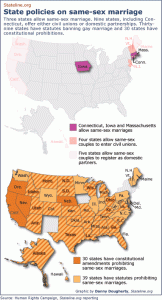The Fort Worth Star Telegram had a nice story on “sin taxes.” In the story, Representative Lon Burnam (D-Fort Worth) reminded us that “Policy should be about encouraging good behavior.” That’s certainly a good question to ask our students. Is the role of government to make us “good”? Or, is it the less ambitious goal of simply keeping us from preying upon each other? What is the proper role for tax policy?
Of course, none of us really wants to defend those pesky sinners in this case. They make such inviting targets for taxation. One danger of a new sin tax is that it perpetuates the idea we can fund the government by taxing someone else. Playing a shell game with taxes is not going to work. Lotteries, sin taxes, etc make dodging the real issues of taxation a little too easy.
 I’m also amused by the notion of a tax on “sexually oriented” businesses. If I want to watch a semi-nude woman dance in some venues, I have to pay what has become known as a “pole tax.” However, if I want to go out and see Britney Spears or similar acts, I will see almost as much skin and hear pretty much the same kind of music and lyrics.
I’m also amused by the notion of a tax on “sexually oriented” businesses. If I want to watch a semi-nude woman dance in some venues, I have to pay what has become known as a “pole tax.” However, if I want to go out and see Britney Spears or similar acts, I will see almost as much skin and hear pretty much the same kind of music and lyrics.
I do not know where to draw the line between art and porn. However, I’m sure I don’t trust elected officials in Texas to tell me if my crush on Holly Hunter crosses the line.
One interesting argument is that sin taxes are really designed to recoup costs these activities create for society. Smoking is linked to illnesses that end up costing society in general. Sexually oriented business have been taxed because they’ve been linked by some to the abuse of women. However, some these links may be weak and there are certainly other causes behind the mistreatment of women. Violent television programming and music would seem to be as great an effect on behavior as those small number of strip clubs. Should movies in general release be taxed based upon their rating? Maybe we should tax R-rated movies while giving Disney movies a tax subsidy. Some video games would seem to do much more to promote violence toward women. Should those be taxed as “adult entertainment”? Where should the state draw the line? Can the state effectively draw that line?
Estimates are that the tax on “sexually oriented” business will net about $8 million a year (It’s not clear if that’s before or after the legal fees required to defend the law). That’s a little over 25 cents per Texan. For my two-bits, I’d prefer that the state stay out of the issue altogether.
Update: The New York Times printed an interesting article on the Op-Ed page making the case for legalizing more sins and taxing them to raise revenue. It should be a good conversation starter.
Filed under: Fiscal Policy, Uncategorized | Tagged: sin taxes | Leave a comment »



